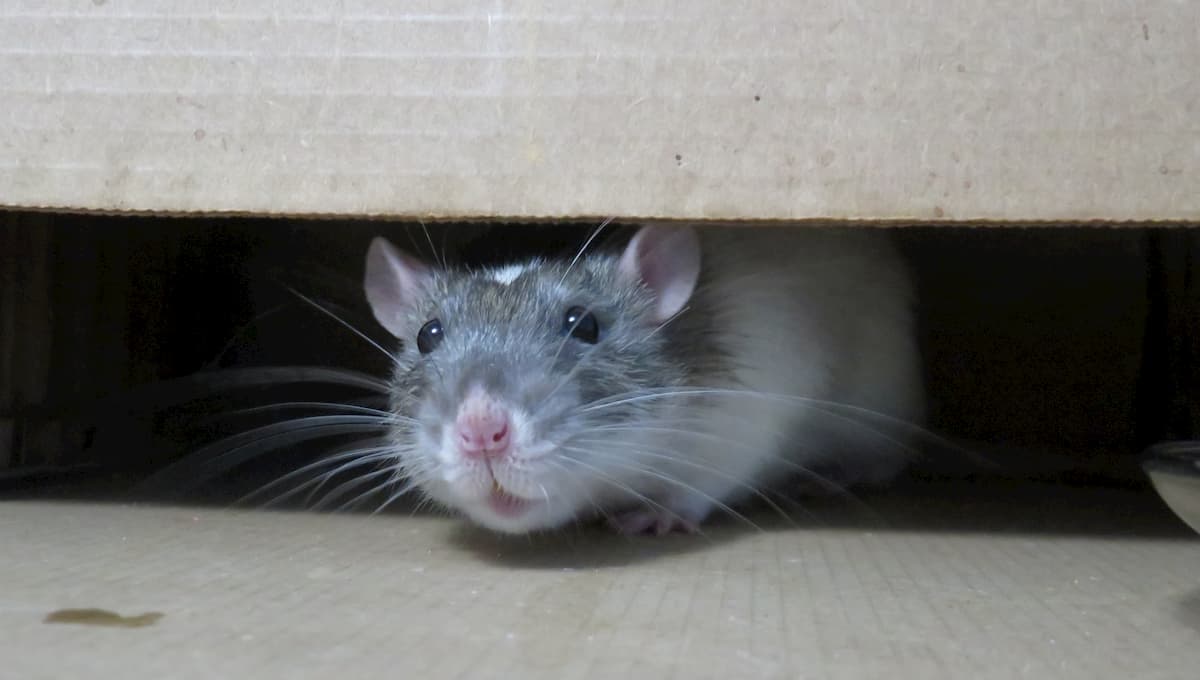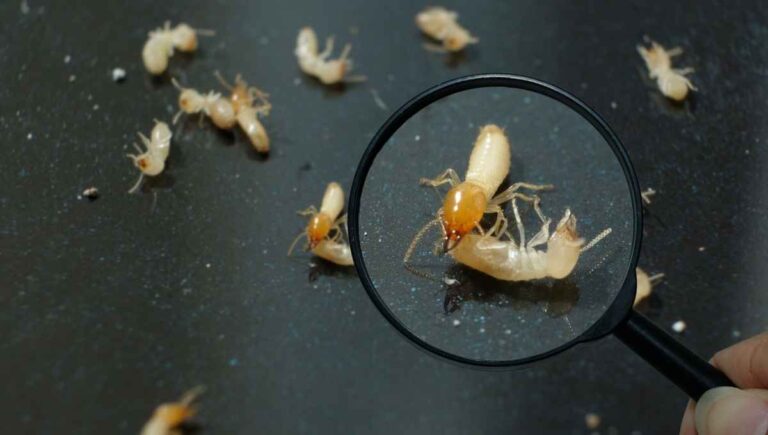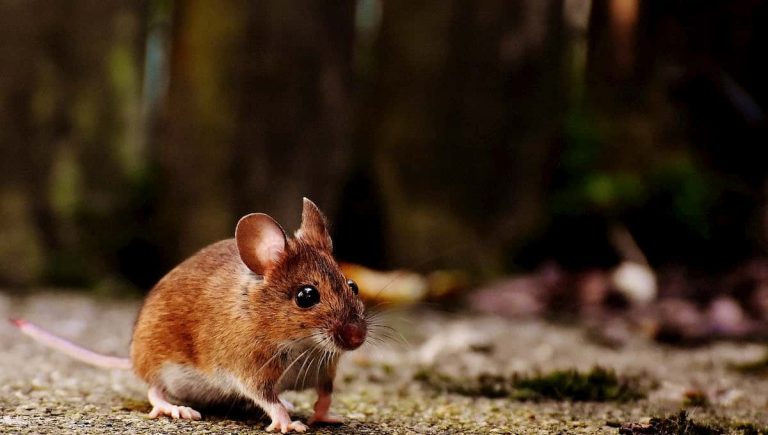How Do I Get Rid of Mice in My Garage as Quickly as Possible?

As the temperatures outside drops, your home may become an unlikely sanctuary for animals who are seeking shelter. Among them are mice, which might choose your garage as a spot for nesting. Anyone who spots a sign of mice infestation in their garage is probably wondering how do I get rid of mice in my garage?
The most effective way to get rid of mice in your garage is by using pest repellents and mouse traps. Once the mice are gone, taking preventive steps is the best way to stop them from coming back. Each method has its own pros and cons. Choosing which one to use will depend on how serious the infestation is.
One of the ways mice might find their way into your house is by starting with the garage, where they would gnaw or chew all your stored items, and make a nest and start a population. If you want to get rid of mice and/or prevent them from settling in your garage, read on.
How Do I Keep Mice Out Of My Garage?
Mice somehow just love to stay in garages (along with spiders and other nasty pests). Why wouldn’t they? The place can be the perfect warm shelter and it can easily be accessed considering they’re small. Garages serve as their entryway to your home. But before they wreak havoc inside your house, they must build their population in the garage.
Is It Common To Have Mice In The Garage?
The house mouse is said to be the most common mammal in the U.S. and homeowners have dealt with rodent infestation at some point in their lives. Accordingly, in 1,000 homeowners, 37% have had problems with mice infestation.
This means, if you’re one who’s having rodent problems, you’re not alone. If you want to find effective ways to control their population, there is also a need to understand why it’s likely for you to find mice in garage in winter. The reasons include:
- Warmth – this is probably one of the main reasons mice want to sneak into the garage, especially when cold season is approaching.
- Availability of food – not only will mice get to have shelter from the frigid temperatures, but they will have enough supply of food. The garage is where you usually keep dog food, birdseed and other food items that can easily be their food source. If you don’t store these properly, the mice will get to them.
- Clutter – the things lying around in the garage that are in disarray will be ideal for mice since they serve as their hiding spots.
- Availability of nesting materials – Mice reproduce very quickly and the garage is the perfect place to get nesting materials for their incoming brood. When you have materials such as paper, cardboard, debris and leaves lying around, then you are making your garage a gold mine.
Understanding why mice love the garage should help you move on to the next step: finding out ways on how to keep mice out of garage and car.
How To Get Rid Of Mice In Garage Humanely
No matter how you look at it, the mice in your garage only exist because you’ve turned the place into a conducive settlement for them to proliferate. They are, after all, just animals that want to survive. While they don’t mean any harm, you don’t want these uninvited guests building their population in your property.
There may be many ways to get rid of mice. Some of them include mouse repellent sprays, ultrasonic mouse repellers and even poisons. However, if you’re generally a lover of animals and you don’t want to hurt them purposely, you need to learn some of the humane ways to get rid of them.
According to the Humane Society International, the humane methods of getting rid of mice from your property can be categorized in two ways:
- Prevention
- Catch and Release
Ideally, the methods do away with poisons, which will cause suffering to the animal for days or even weeks. While you may think toxic substances are effective at that moment, these methods don’t really offer a long-term solution.
Eliminating one mouse doesn’t mean you have succeeded with your pest control. The same thing goes if you’ve managed to drive away an entire nest. Overtime, if you do not address the clutter in your garage or if you won’t do something to make the place unfavorable for them, new ones will eventually move in.
Prevention
Mice can get inside your house from your yard easily through small cracks and spaces, like in air vents or gaps in water pipes. That said, blocking their entry is the first step to making sure they never step foot in your garage or anywhere in your house.
To do that, seal off holes or cracks with a caulk sealant. Of course, you want it waterproof like GE GE281 Advanced Silicone. In addition to closing off gaps and cracks, you can make sure that food supplies in your garage are not easily accessible. This is especially true if you have bird seeds in your garage.
You can also de-clutter, making sure that potential nesting materials, such as cardboard and paper are sealed away in a container, just like these durable plastic storage bins from Rubbermaid.
Once you start to see signs of mice infestation, it’s best to act quickly. Identify and remove food sources and any attractants that can invite mice. If you spot any mouse running around, humanely remove the animal and then continue with the sealing.
Below are some quick tips on what you can do to keep mice outside of your home:
- Mice can easily live on crumbs, so make sure to clean your kitchen or anywhere in your home where there are likely food crumbs.
- Keep glass containers to store food that is inviting for rodents. These include bread, pasta, and crackers. Check out this beautiful set of Razab Homegoods glass storage containers with airtight lids.
- Pet food should also be stored in air-tight, rodent-proof storage containers.
- Make sure pet food is consumed and don’t leave them out in the open overnight.
Catch and Release
If rodents don’t leave your garage on their own, you might want to try another option, which by the way, should only be a last resort. Catch and release involves capturing the animal live and releasing it as far away as possible from your home.
This is one of the most humane ways of getting rid of mice and is more preferable than using poisons and other methods that can hurt the animals. However, this does not guarantee that the mice will make it to safety, especially when they’re left in an unfamiliar environment.
For instance, if the mice you’ve caught have been inside your home for several generations, they might not be resilient enough to withstand an outdoor environment. In addition, catch and release could mean leaving baby mice in garage to fend for themselves as they’re separated from their mom. Most likely, they won’t make it as well and will likely die.
Tips To Deal With Captured Mice
So you’ve decided to use this humane method; you’ve purchased a trap that doesn’t hurt the mice. What should you do next?
If you continue to think about the mouse’s welfare upon release, then you should consider letting them go in areas with dense vegetation. This should give them a chance to hide and evade predators. If not, you can find a place far from your home that has an abandoned shed nearby. This will serve as shelter for the mice.
If you are certain that you have caught a lactating mouse, you might be in a real dilemma. You’ll be torn between releasing the mother while separated from her young or making sure you catch all of them so you can relocate the family to a safer place. This is something you should weigh beforehand.
Now that you’ve removed the mice from your garage, it’s time to reevaluate your prevention measures. Ensure that you have sealed cracks and gaps to prevent re-entry.
How Do I Get Rid Of A Rat In My Garage?
The methods to deal with a rat in your garage are the same as those used for getting rid of mice. After all, they belong to the same family of animals – rodents. However, there are differences between the two that might help you with your decision on what methods to use.
One of the main differences between a rat and a mouse is their behavior, in which rats tend to be cautious while mice are usually curious. Being cautious means being very careful with new things introduced in the surroundings.
In this case, if you put out rat traps, place them in the animal’s path unset. That way, the rats will know that it’s nothing to be cautious about and they’ll get used to it.
Mice, on the other hand, are curious little creatures that will not hesitate to investigate something unfamiliar to them. In this case, set a trap right then and there and just wait for the mouse to take the bait.
How To Find Mouse Nest In Garage
With all the clutter you have in your garage, it might be a challenge to find where the mice nest is. However, you don’t need to go around the garage searching for it because telltale signs would be enough to prove you have mice infestation.
For instance, if you notice mouse droppings somewhere in your garage, or you hear squeaking noises, then that should tell you there’s a nest. Mice may be curious creatures but they tend to be shy and they won’t take their activities no more than 25 feet away from the nest.
How To Know It’s a Mice Nest
As mentioned, paper, cardboard and debris are favorite nesting materials of mice. The nest looks like a rough ball made of the bits and pieces they’ve collected from your garage. And since they’re not really tidy creatures, you may see droppings everywhere – and that should indicate a nest is nearby.
Does One Mouse Mean An Infestation?
Once you have observed signs of a nest nearby, you might wonder how many mice should there be to be considered an infestation. To answer the question, one mouse is not really considered an infestation. You may spot one mouse running around the garage, but it doesn’t automatically mean you’re dealing with an infestation.
However, if control methods are not in place, that single mouse can easily lead to infestation. After all, it’s a fact that they are prolific breeders, able to produce five to twelve baby mice in each litter. They won’t stop reproducing unless they are exterminated.
What Do You Do If You Find Baby Mice?
Stumbling upon a nest with baby mice can be a real dilemma. You might be wondering what’s the right thing to do. Below are several options to deal with baby mice that people might consider (or have considered).
- Call a wildlife rehabilitator – experts may come visit you and take charge. They should be able to keep them safe, should you be concerned about the welfare of the orphaned mice.
- You can take them out and place them as far away as possible from humans, with or without the mother. If you’re moving the family to a new place, it would be a good idea. On the other hand, if you’re only taking away the young, you may be leaving them to suffer or worse, they won’t make it.
- Euthanization is also another option that many have considered, especially if the babies don’t have their mother.
How To Get Rid Of Mice Naturally
While many homeowners have used poisons to get rid of mice effectively, they can be a risk to children and pets that might get to them accidentally. If using poisons is not an option, you can go for natural rodent control methods instead.
What Home Remedy Can I Use To Get Rid Of Mice?
Other than the previously mentioned prevention and deterrence, home remedies exist to get rid of mice naturally. But why do some people prefer home remedies instead of poisons and traps? This is because they’re effective and they’re non-toxic.
Safety and toxicity become important factors to consider for anyone with kids and pets. You don’t want to set up traps or put out poisons, which children and pets may inadvertently stumble upon. Home remedies, on the other hand, are simple to prepare and are generally harmless.
Below are some of the tips and tricks shared by homeowners on how to get rid of mice using home remedies:
- Used Kitty Litter – Cats are known as a natural predator of mice. Putting used kitty litter near suspected entry points can make mice think that your home has feline guards. The little ones will scurry away once they smell cat urine in kitty litter.
- Inviting natural predators – other than cats, which you can keep as pets and as a mouse-catcher, inviting natural predators can also help. Barn owls can be the perfect predator to have in your backyard. Nesting boxes mounted high off the ground should be able to attract them in your area.
- Using scents – there are certain smells that are repulsive enough to drive mice away from your home. Fortunately, you can easily find them in your pantry – peppermint. The next section will discuss in detail peppermint as
- Using steel wool – Steel wool can be used to keep mice away. Since mice can’t chew them, you can place them in entry points and crack to discourage them from moving forward and moving into your home. Need a lot of steel wool? Check out Scrub-It’s Pack of 20 Steel Wool.
What Scent Will Keep Mice Away?
Some scents can be too strong for mice that they don’t want to be around the area. One of these scents is peppermint, which is known to be widely-used as a mice deterrent. If you use it the right way, you can see that this can be an effective home remedy against mice problems.
When you use peppermint, make sure you buy a 100% pure product, such as this undiluted oil from Pure Body Naturals. You can purchase it online or visit a local health food store. Just inform the staff what you’re looking for and mention that you’re getting it to repel mice.
Next is to use the right amount of peppermint oil so it would be strong enough to drive away mice. In this case, the more you put them out, the better. Usually, the oils are soaked in cotton balls and placed in suspected entry points.
Keep in mind, though, that using peppermint may not be helpful if you use it to drive away mice that have been living inside your garage or home. If you place peppermint cotton in one spot, mice can always just look for a new spot where they can nest. Instead, peppermint will be more effective when used to discourage rodents from entering your home in the first place.
There are also products that contain peppermint and formulated into an organic rodent spray. If you can’t get pure and undiluted oil, you can use rodent sprays with peppermint, such as this Organic Rodent Spray from mdxconcepts.
Using Traps and Ultrasonic Pest Repellers
If none of the methods mentioned above worked for you, you can always opt for traps and ultrasonic pest repellers. There are many humane traps for sale these days so you don’t have to worry about hurting the mice in the process.
Cruelty-Free Mouse Trap
A humane mouse trap will not snap and kill a mouse, but instead, allows you to catch the critter in one piece so you can set it free in the wild. They usually have a trap-door mechanism that gets triggered once the mouse takes the bait. The mouse gets trapped inside unharmed. If you’re considering using this kind of trap, do check out this cruelty-free trap, CaptSure.
Ultrasonic Mouse Repellent
Sonic or ultrasonic devices have been used to repel many pests, not just rats. It’s been said that they can work against mosquitoes and roaches as well.
They operate under the theory that high-frequency sounds will be irritating enough to drive away mice and discourage them from settling in your home. If you have an outdoor ultrasonic rodent repeller, then rodents might not get near your property as well.
The sound emitted by the device cannot be heard by humans, so it’s safe to use even around kids. But Is an ultrasonic mouse repellent safe for pets then?
Yes and no. Ultrasonic repellents may not bother cats or dogs, but since it’s made for rodents, your pet hamsters or guinea pigs might not like it. So, use caution when you choose this product.
How Long Do Ultrasonic Pest Repellers Last
Ultrasonic devices can work for longer periods as your pest control method since they have a lifespan of 3-5 years. You don’t have to worry about rodents re-emerging because it can last that long.
Many of them are sold in packs so you’ll get more value for your money, just like Pet Soldier Set of 4 Ultrasonic Pest Repellers. In addition, you will know when the devices will no longer work by looking at an LED indicator light.
Conclusion: How Do I Get Rid of Mice in My Garage?
Getting rid of mice in your garage starts by making the space inaccessible to mice. This can be done by sealing holes and cracks in doors, windows or even vents. Another is by making your garage space unconducive. If there are no nest materials and food sources, the mouse will less likely settle.
Clean up the garage and store items like paper and cardboard and pet food away in airtight storage bins. If preventive measures won’t work, it’s time to think about finding the best mouse repellent and traps.
Repellents and traps can be used in both humane and inhumane ways to deal with the situation. But if you’re leaning more into the former, then the use of deterring scents, and a method called catch-and-release should help you with your mice problems.







